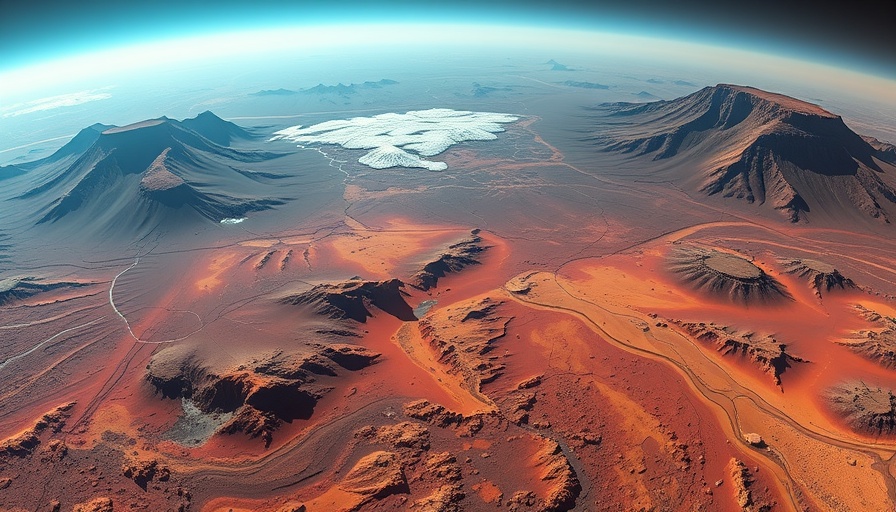
The Icy History of Mars: Glaciers and Liquid Water
For decades, Mars has captivated scientists with its arid landscape, but emerging research suggests that the planet once boasted frozen glaciers and flowing water. Recent findings presented by scientists from the Planetary Science Institute reveal that the northern regions of Mars likely sustained a cooler yet wetter climate, resulting in the formation of glaciers. In particular, a crater within the northern Arabia Terra region, along with the adjacent Heart Lake System, provides evidence of ancient glacial activity.
Subglacial Melting: A Clue to Mars' Warm Past
The findings highlight a significant historical perspective: glaciers on Mars may have receded, leading to a unique geological formation known as a proglacial lake. By analyzing the evidence from the crater—which includes shallow channels and glacial deposits—researchers uncovered a narrative of glacial retreat and lake formation. This suggests that, during certain periods, Mars may have supported conditions suitable for liquid water, echoing findings from earlier missions like the Viking missions in the 1970s.
The Significance of Glacier Studies on Mars
Understanding glaciers on Mars is essential not only for grasping the planet's climatic history but also for informing future exploration and understanding potential habitability. As Berman and Williams note, features indicative of glacial processes have been extensively documented on Mars, shaping our comprehension of its environmental evolution. The ongoing study of these features can yield insights crucial for international efforts to explore and potentially colonize Mars.
Current Research and Future Missions
As we look forward, the research undertaken by Berman and Williams at the 2025 Lunar and Planetary Science Conference sheds light on the potential for future missions to gather data on glaciation on Mars. Their extensive backgrounds on various NASA-related projects, including those involving the Mars Reconnaissance Orbiter and the Perseverance rover, highlight the importance of continued exploration in understanding the Red Planet's ice-covered past.
What Lies Ahead for Martian Exploration?
Given the findings regarding ancient glaciers, future spacecraft missions may be designed to target significant glacial sites, furthering our knowledge of Martian geology and climate history. With Mars presenting both challenges and opportunities for exploration, scientists remain hopeful that these icy features may offer not just a glimpse into the planet's past, but also hints towards the existence of life or the feasibility of supporting human life in the future.
Concluding Insights
As we continue to unravel the fascinating history of Mars, studies of glaciers offer an exciting pathway to understanding the potential for life beyond Earth. With each discovery, we take steps closer to answering profound questions about our place in the universe and the processes that shape planetary evolution. This continual research reinforces the importance of Mars as a destination for future exploration.
 Add Row
Add Row  Add
Add 




Write A Comment